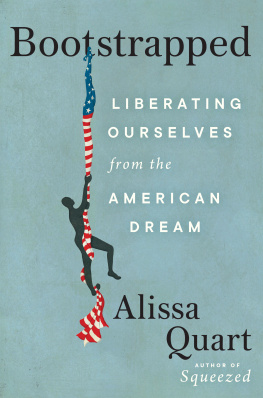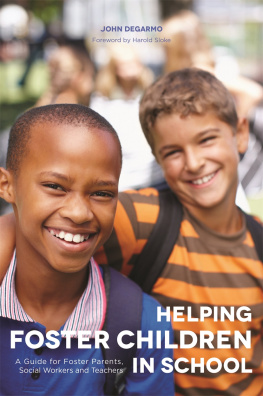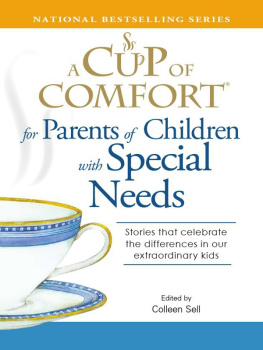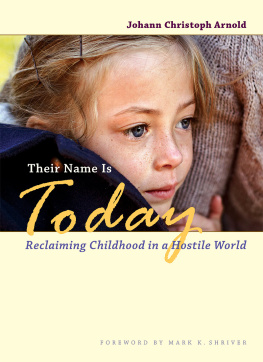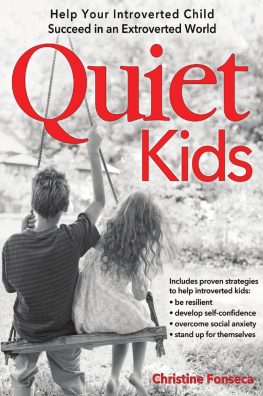Hothouse Kids
How the Pressure to Succeed
Threatens Childhood
Alissa Quart

PENGUIN BOOKS
PENGUIN BOOKS
Published by the Penguin Group Penguin Group (USA) Inc., 375 Hudson Street, New York, New York 10014, U.S.A. Penguin Group (Canada), 90 Eglinton Avenue East, Suite 700, Toronto, Ontario, Canada M4P 2Y3 (a division of Pearson Penguin Canada Inc.) Penguin Books Ltd, 80 Strand, London WC2R 0RL, England Penguin Ireland, 25 St Stephens Green, Dublin 2, Ireland (a division of Penguin Books Ltd) Penguin Group (Australia), 250 Camberwell Road, Camberwell, Victoria 3124, Australia (a division of Pearson Australia Group Pty Ltd) Penguin Books India Pvt Ltd, 11 Community Centre, Panchsheel Park, New Delhi110 017, India Penguin Group (NZ), 67 Apollo Drive, Rosedale, North Shore 0745, Auckland, New Zealand (a division of Pearson New Zealand Ltd) Penguin Books (South Africa) (Pty) Ltd, 24 Sturdee Avenue, Rosebank, Johannesburg 2196, South Africa
Penguin Books Ltd, Registered Offices:
80 Strand, London WC2R 0RL, England
First published in the United States of America by The Penguin Press, a member of Penguin Group (USA) Inc. 2006
Published in Penguin Books 2007
Copyright Alissa Quart, 2006
All rights reserved
Excerpt from My Son My Executioner from Old and New Poems by Donald Hall. Copyright 1990 by Donald Hall. Reprinted by permission of Houghton Mifflin Company.
All rights reserved.
THE LIBRARY OF CONGRESS HAS CATALOGED THE HARDCOVER EDITION AS FOLLOWS :
Quart, Alissa.
Hothouse kids: the dilemma of the gifted child / Alissa Quart.
p. cm.
Includes bibliographical references and index.
ISBN: 978-1-1012-0160-2
1. Gifted childrenSocial conditions. 2. Gifted childrenPsychology. 3. Gifted childrenEducation. 4. ChildrenIntelligence levels. I. Title.
HQ773. 5Q83 2006
305.9'089dc22
2006043771
Except in the United States of America, this book is sold subject to the condition that it shall not, by way of trade or otherwise, be lent, resold, hired out, or otherwise circulated without the publishers prior consent in any form of binding or cover other than that in which it is published and without a similar condition including this condition being imposed on the subsequent purchaser.
The scanning, uploading and distribution of this book via the Internet or via any other means without the permission of the publisher is illegal and punishable by law. Please purchase only authorized electronic editions, and do not participate in or encourage electronic piracy of copyrighted materials. Your support of the authors rights is appreciated.
For Peter Maass
Hothouse Kids
ONE
The Icarus Effect
And time shall force a gift on each.
JOHN ASHBERY
I used to be smart, and now Im stupid.
EXWHIZ KID DONNIE SMITH , in the film Magnolia
L arisa Stephan became an adult without having experienced childhood. She now has all the markers of conventional sanity and, indeed, plenitude: a family of her own, and a flourishing career as an engineer. But the thirty-seven-year-olds travels there started too early. Her father began the educational enrichment when she was two. That was when she took her first IQ test, and began an activity-rife childhood west of Beverly Hills.
My IQ was outlandishly high, 180 to 190, so my father believed I was a genius and that I was never up to my potential, says Stephan, her pale, unadorned face framed by light brown hair in a short bob. The IQ test was taken when I was twowhich means it was so high because I had the skills normal for a four-year-old when I was two, she says. That doesnt mean I was a genius.
Her father held up other prodigies as examples, including child musician Dylana Jensen. Stephan remembers her father taking her to see Jensen play a concert; Jensen was then on the brink of adolescence. Larisas father remarked forbiddingly that Dylana was experiencing a tough time in her young lifepassing from a time when she was a prodigy to a time when she would be just like everyone else, competing with adult violinists who were as talented as she wasor more so. Stephan felt the chill of comparison in her fathers words.
I totally try to repress my childhood, she says. The enrichment bled the joy out of me. Today I dont do horse riding, or play the violin or do ballet, she says, her voice rising. I do nothing that was part of that enrichment.
She shows me the pictures of her own childhoodindeed, she is doing something in all of them. Playing a violin, reading a book, accompanied by her blond hair and a big smile. The smile seems intended to reassure the onlooker that she is enjoying these pastimes.
Stephan lives in the Westchester section of Los Angeles. It is near the LAX airport, a part of town where, in homage to the flight industry, roads are named Boeing and Aviation. Stephan has worked in some capacity or other for the defense industry since she was seventeen. Today she is an electrical engineer for the defense company Raytheon, in El Segundo. Her one-story home, of a piece with its neighbors in an area of modest middle-class houses from the 1940s, houses her husband and their three childrenDylan, Tara, and Maya. Its just after Christmas, and her childrens names have been painstakingly lettered with sparkle glue on stockings that hang near the tree.
My father believed that there were these external success indicators of your value, Stephan says. If you got those indicators, you were good and you were smart. If you could say that you learned to ride a horse at a gallop, you were a good equestrian, check. If you could say you took the Golden State Math Exam and scored in the top two percent, check. One built up a roster of indicators that made you feel all right. True achievement and true accomplishment, I believe now, is a process you enjoy. Adults who are good at playing violin are good at it because they enjoy playing the violin. I disliked it, even when I was three. I was angry at having to go to lessons all of the time. It was all a blur. I never had less than two or three things going on at one time: flute, violin, and chess, art lessons and guitar. If she ever showed interest in an activity, she says, her father converted this interest into an education.
While she did achieve mightilyshe attended Harvard at fifteen, and earned a masters degree in math from Berkeley when she was twenty-oneit all stemmed from her fathers insistence that she had to achieve. To Stephans mind, that demand emptied her achievements of value.
My father was like, My child is a genius, says Stephan. He tried to enrich me, enrich me like flour.
S tephans experience was a precursor to the movement toward more intense parenting of recent years. The characteristics of that movement include a growth in enrichment activities; an increase in childrens structured time as opposed to free play hours; an explosion of new classes, specialized camps, and competitions; and the enrollment of ever-younger kids in these competitions. One side effect of this is a tendency to professionalize playto turn what children do for amusement into their vocationas soon as possible.
Add to that the IQ testing of toddlers, and its clear that child enrichment has filtered down into infancy, with such keystones as the baby sign language vogue and the fad for infant edutainment videos like the Baby Einstein series. I call it the Baby Genius Edutainment Complex.


